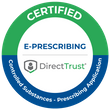Medical Coding Services
Medical coding serves several important functions:
Billing and Reimbursement: Accurate coding is crucial for submitting claims to insurance companies or government healthcare programs for appropriate reimbursement. Codes provide a standardized way of communicating the services provided, allowing for accurate payment calculations.

Medical Documentation: Coding requires a thorough understanding of medical terminology, anatomy, and medical procedures. By reviewing medical records and assigning codes, coders help ensure comprehensive and accurate documentation of patient encounters.
Research and Analysis: Aggregating coded data enables researchers, public health agencies, and healthcare organizations to analyze trends and outcomes on a broader scale. These analyses can inform healthcare policy, quality improvement initiatives, and research studies.
Commonly used coding systems include:
– International Classification of Diseases (ICD): Used to code diagnoses and symptoms.
– Current Procedural Terminology (CPT): Used to code medical procedures and services provided by healthcare professionals.
– Healthcare Common Procedure Coding System (HCPCS): Used for procedures not covered by CPT codes, such as durable medical equipment and supplies.
Medical coding requires specialized knowledge and expertise, and it is typically performed by certified medical coders. These professionals undergo training and certification programs to acquire the necessary skills and stay updated with the latest coding guidelines and regulations.
The role of medical coders is crucial in ensuring accurate and standardized coding, which ultimately impacts reimbursement, compliance, and healthcare data analysis. It is important for healthcare organizations to maintain a strong focus on accuracy and ongoing education to support effective coding practices.
